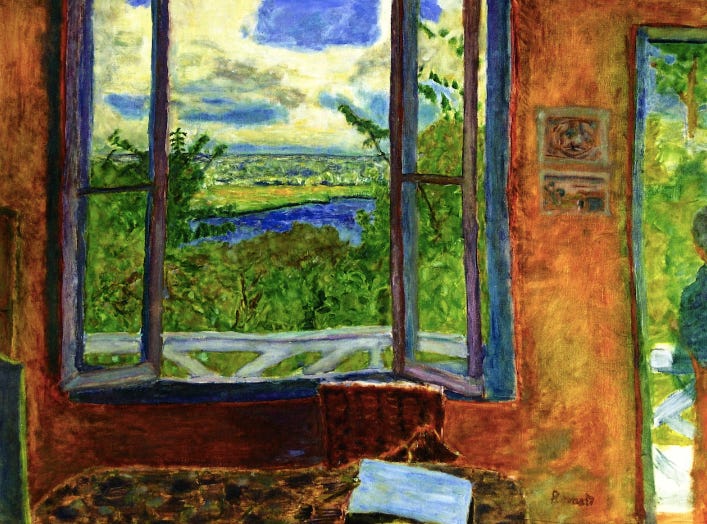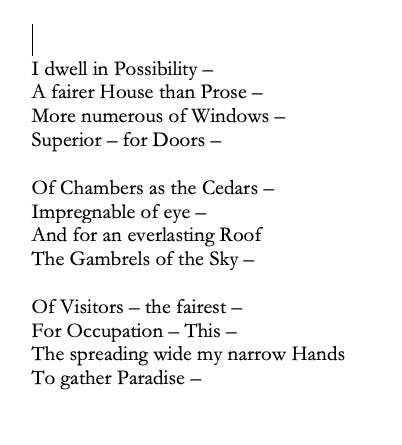Gaps, spaces, and the unsaid. For Emily Dickinson, these aspects of a poem offer possibility. This idea is explored in her poem that begins, ‘I dwell in Possibility – '
Typically, Dickinson does not name the thing for which she is creating a metaphor. But in this case, at least one option is quite clear: the ‘House’ stands in for ‘poetry’. The ‘House’ or poetry, Dickinson suggests, offers ‘Possibility’. But why is poetry ‘fairer’ than ‘Prose’? The answer begins to emerge in the third and fourth lines of the poem: ‘More numerous of windows – / Superior – for Doors – '.
What is the element which allows poetry to be the ‘fairer’ Snow White to its queen stepmother, ‘prose’? Poetry surpasses prose for Dickinson because of its ‘numerous’ and ‘superior’ openings. When she began another poem ‘They shut me up in Prose’, she suggests that prose is a place that is closed, even locked.It does not have the same spaces and gaps as poetry. What makes poetry distinctive, for Dickinson, are its ‘windows’ and ‘doors’. The openings in writing are as necessary as the openings in a house. The poem’s last lines, ‘The spreading wide my narrow Hands / To gather Paradise – ’, seem to suggests that poetry, with its gaps and silences, is a dwelling place of such otherworldly scope that it is a kind of eternity: ‘Paradise’. The possibilities for meaning in the poetics of reticence is endless.




Birds can fly south in the winter
Trees send their roots through the ground
But, to get home in time for my dinner
Is harder by far, I have found. - Lenny Smith